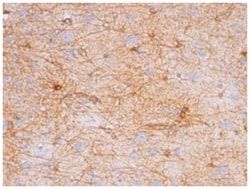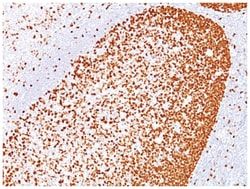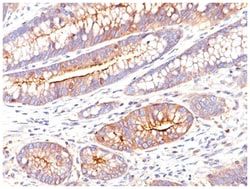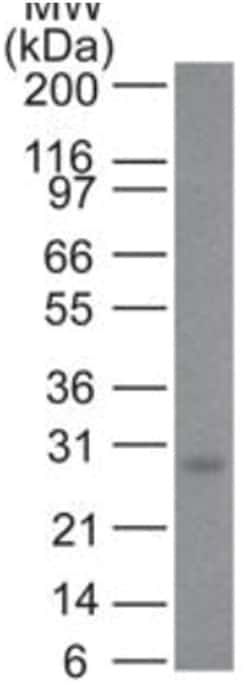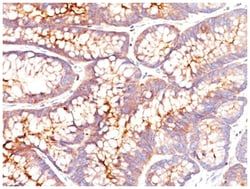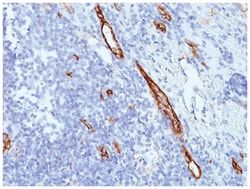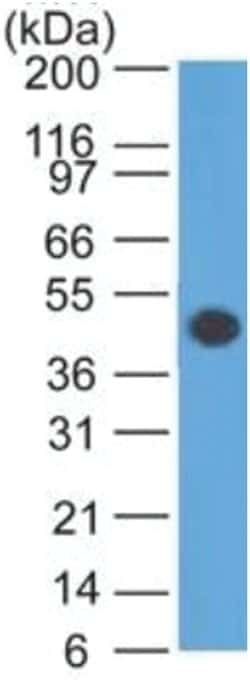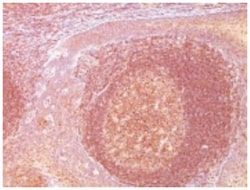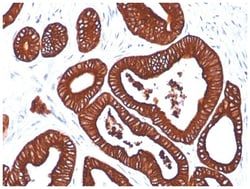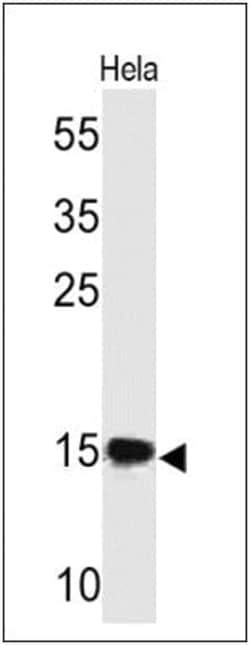GFAP Mouse, Clone: SPM507, Novus Biologicals™
Mouse Monoclonal Antibody
Manufacturer: Fischer Scientific
The price for this product is unavailable. Please request a quote
Antigen
GFAP
Dilution
Western Blot 0.5-1ug/ml, Flow Cytometry 0.5-1ug/million cells, Immunocytochemistry/Immunofluorescence 1-2ug/ml, Immunoprecipitation 1-2ug/500ug, Immunohistochemistry-Paraffin 0.5-1ug/ml, Immunohistochemistry-Frozen 0.5-1.0ug/ml
Classification
Monoclonal
Form
Purified
Regulatory Status
RUO
Target Species
Human, Mouse, Rat, Porcine, Bovine, Chicken, Rabbit
Gene Accession No.
P14136
Gene ID (Entrez)
2670
Immunogen
GFAP isolated from pig spinal cord
Primary or Secondary
Primary
Content And Storage
Store at 4C.
Molecular Weight of Antigen
50 kDa
Clone
SPM507
Applications
Western Blot, Flow Cytometry, Immunocytochemistry, Immunofluorescence, Immunoprecipitation, Immunohistochemistry (Paraffin)
Conjugate
Unconjugated
Host Species
Mouse
Research Discipline
Astrocyte Markers, Cancer, Cellular Markers, Cytoskeleton Markers, Neuronal Stem Cell Markers, Neuroscience, Stem Cell Markers
Formulation
PBS with 0.05% BSA. with 0.05% Sodium Azide
Gene Alias
FLJ45472, GFAP astrocytes, glial fibrillary acidic protein
Gene Symbols
GFAP
Isotype
IgG1
Purification Method
Protein G purified
Test Specificity
This MAb recognizes a protein of ∼50kDa which is identified as Glial Fibrillary Acidic Protein (GFAP). It shows no cross-reaction with other intermediate filament proteins. GFAP is specifically found in astroglia. GFAP is a very popular marker for localizing benign astrocyte and neoplastic cells of glial origin in the central nervous system. Antibody to GFAP is useful in differentiating primary gliomas from metastatic lesions in the brain and for documenting astrocytic differentiation in tumors outside the CNS.
Description
- GFAP Monoclonal specifically detects GFAP in Human, Mouse, Rat, Porcine, Bovine, Chicken, Rabbit samples
- It is validated for Western Blot, Flow Cytometry, Immunohistochemistry, Immunocytochemistry/Immunofluorescence, Immunohistochemistry-Paraffin, Flow (Intracellular).
